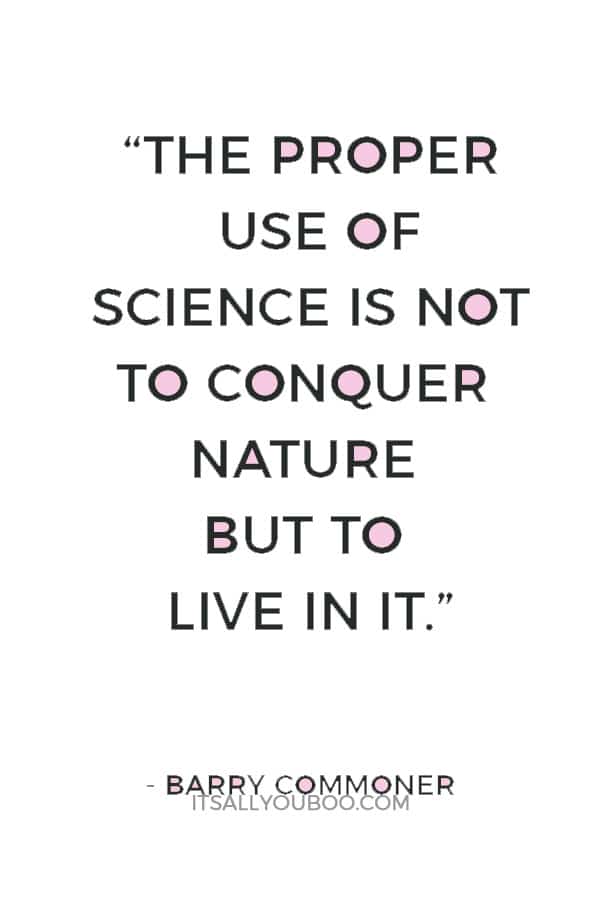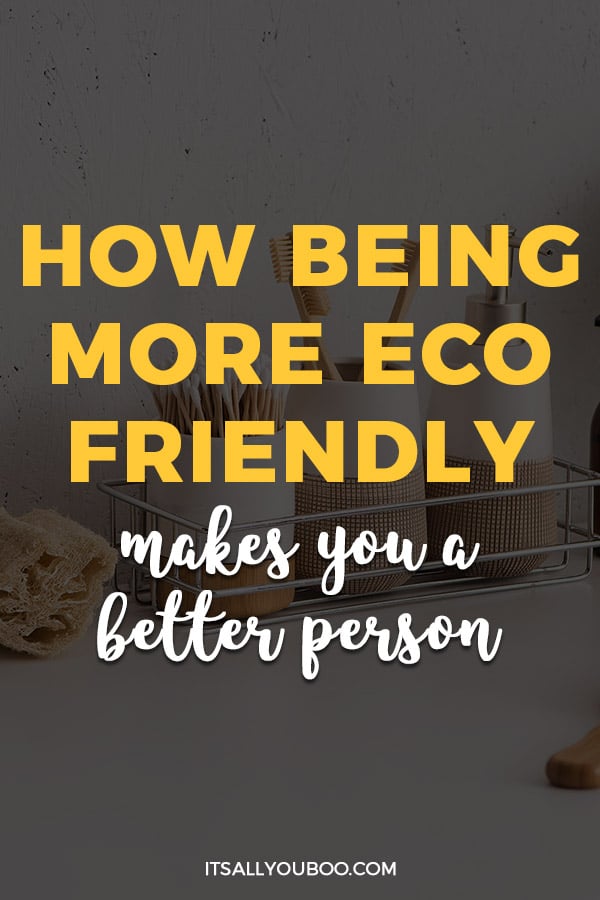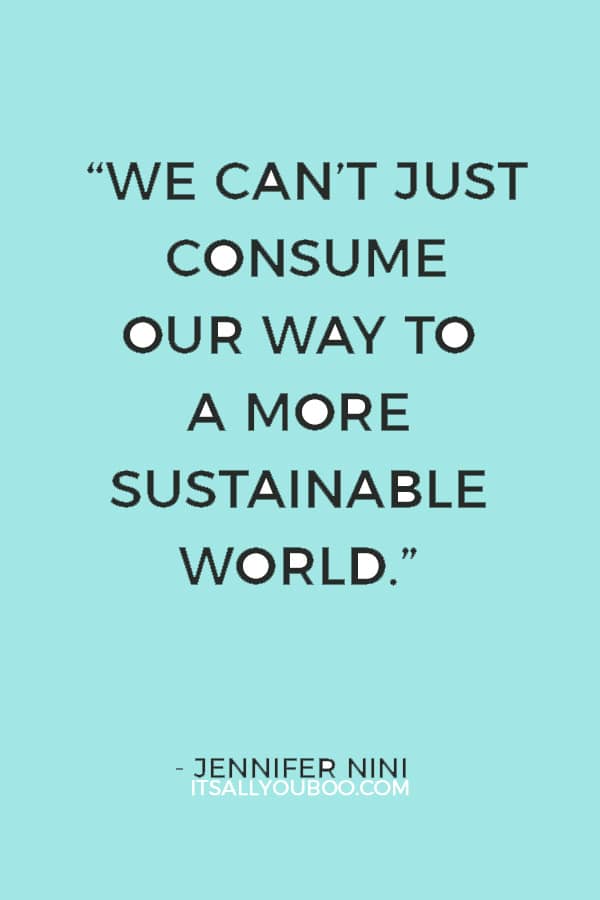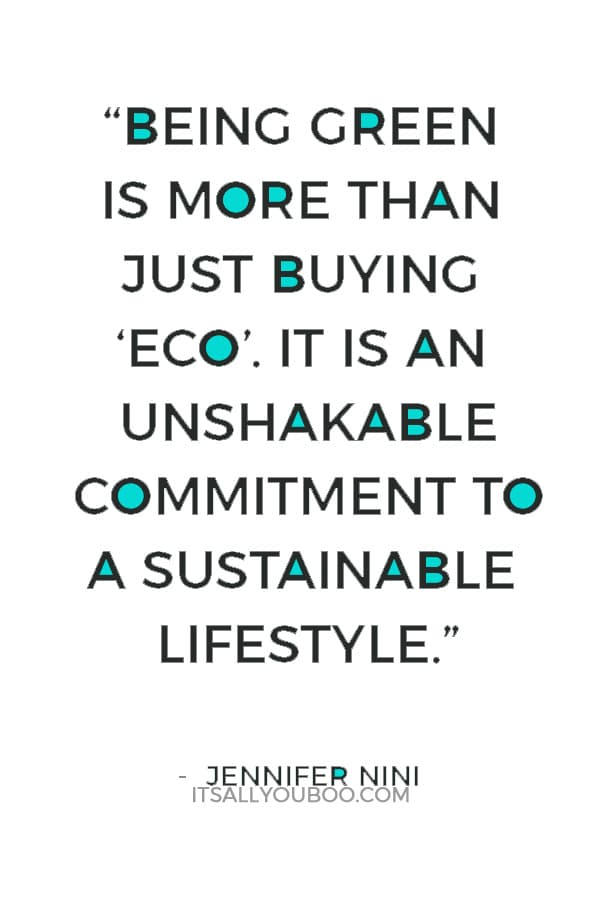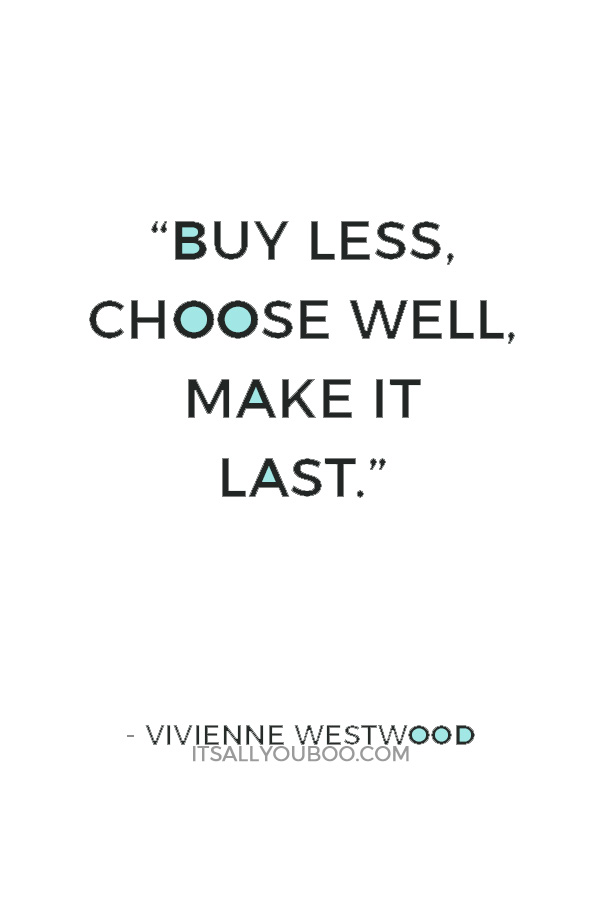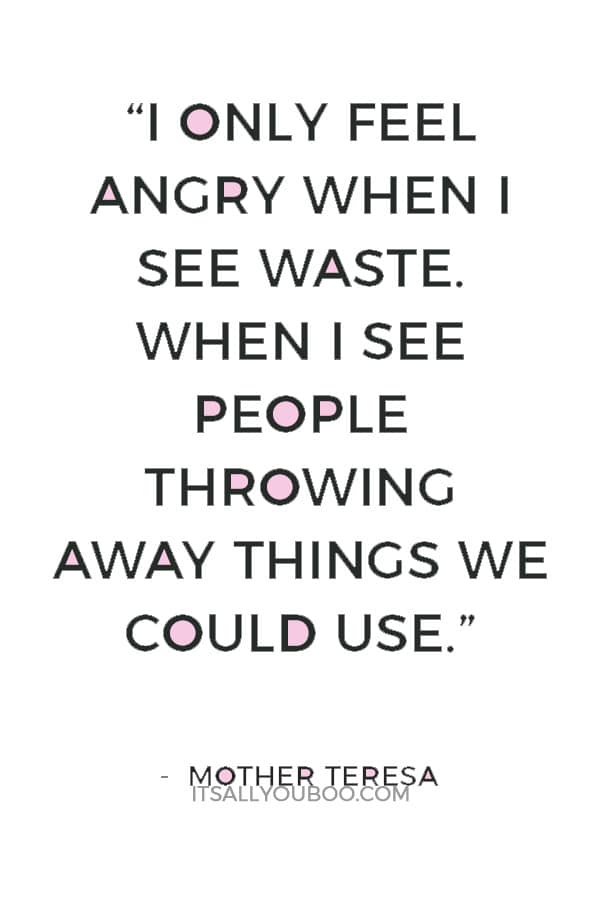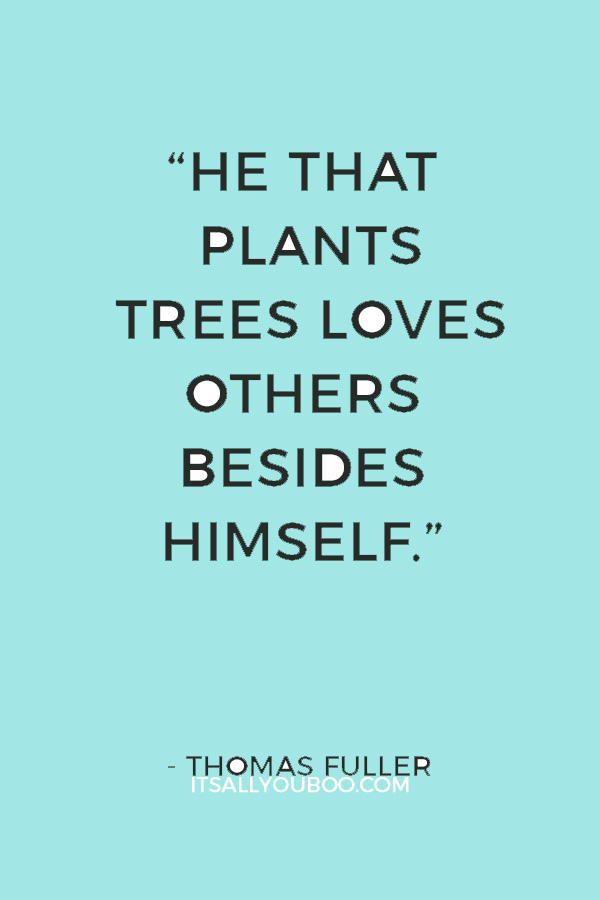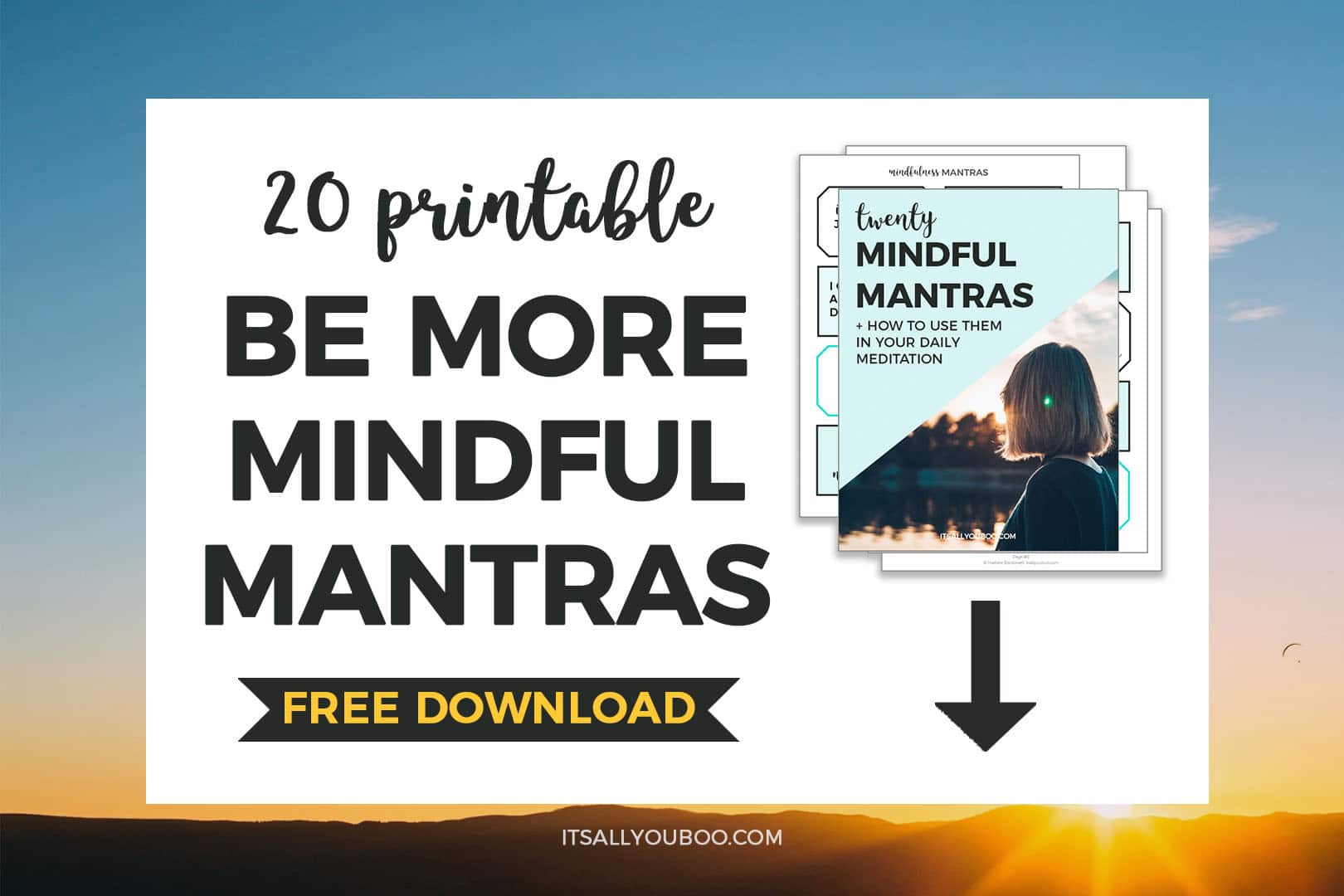Looking for tips for being more eco friendly?
Want to know how to be more environmentally friendly?
How often do you get those a-ha moments in life? You know, the ones where you watch a documentary, read a book, see a work of art, and finally get a sense of clarity about what you’re supposed to do next?
For me, they don’t happen often. But when they do, they’re life-changing.
The last time I felt such a clear vision of what I was supposed to do next was when I found out that in 2019, Earth Overshoot Day fell as early as July 29th. If humanity, as a collective, was going through Earth’s resources so quickly, then there had to be something I could do to make a difference.
Fuelled by the shock, I threw myself into research about all the small things individuals could influence by reconnecting with nature and being more eco friendly. But what I found out wasn’t a way to save the planet.
Instead, my venture into ecological mindfulness opened the doors to the type of self-knowledge I wouldn’t have thought possible two or three years ago.
So, if you’re looking for ways to become the best possible version of yourself, why not start by doing something for nature instead and learning how to be more environmentally friendly?
THIS POST MAY CONTAIN AFFILIATE LINKS.
IF YOU MAKE A PURCHASE FROM THESE LINKS, I MAY EARN A SMALL COMMISSION.
CLICK HERE FOR MY FULL DISCLAIMER STATEMENT.
A Call to Change
The core principles of sustainable living include the three Rs most of us know from childhood: Reduce, Reuse, Recycle.
But the thing is, we all tend to lead lives of excessive consumption, without remembering to do anything other than recycling. Not that it’s a small contribution. But, unfortunately, it’s not enough.
On my journey of ecological consciousness, I came across a host of zero-waste bloggers whose mission was to generate as little trash as possible. The concept, which just a few years ago seemed like a crazy, impossible way of life, became a sort of challenge for me.
👉🏽 RELATED POST: Personal Goals Examples to Live Your Best Life
I found myself searching for sustainable product alternatives, exploring new practices, and finding ways of leading a life with less.
Shifting My Focus to Eco-Friendly
The challenge also spurred me on to make a much deeper change: to question my relationship with material things.
Although I had never been one to engage in shopping therapy, I found out just how big of a role purchasing stuff played in my life. Like many of us, I wasn’t immune to reaching for a piece of clothing at the department store just because it was kinda cute or getting another pair of shoes because I “needed” them.
👉🏽 RELATED POST: Benefits of Minimalist Living
Taking the simple step of forcing myself to practice a 30-day thinking period for every non-essential purchase, I quickly came to realize just how susceptible I was too impulsive buying.
But, now that the possibility of instant-gratification was removed, I found myself focusing on things that were much more profound than ownership.
I was suddenly asking myself complicated questions, like:
- Who do I want to be?
- What is my contribution to society?
- What are the things that are truly important?
As you can imagine, I did not come to the conclusion that owning the latest tech, having a super-stylish wardrobe, or treating myself to a takeaway coffee in a polythene-lined cup was essential to who I was.
But the way I practiced conscious living – now, that did turn out to mean quite a lot.
Expanding the Three Rs of Sustainability
So, how do you go from realizing something about yourself to turning it into a growth opportunity?
Well, my first tip is to take a page out of the book of those “crazy” zero-wasters: expand the list of actions you can take to make a difference. No matter how small. Once you get started, you’ll find that each one offers a way to do much more than just reduce waste.
#1. Refuse
Though it sounds simple, the practice of refusing that which you don’t need isn’t always so easy. Sure, you can say no to a plastic bag at the grocery store or a straw at a restaurant. But turning this into a habit goes much deeper than giving up on non-essentials.
We’re often taught to measure life through items. But once we get into the practice of differentiating between those that are important and those that are only a source of clutter, it becomes only logical to carry this mindset into other areas of life as well.
Emotional and mental clutter can often make us feel like we’re not in control. Yet, the simple fact is, we very much can be.
We can:
- refuse to participate in practices that aren’t doing us (or our loved ones, or our planet) any good.
- take ownership of our actions.
- do our bit, no matter how small, to make our community a better place for everyone.
So yes, refusing a cheaply made freebie is a minuscule action in the grand scheme of things. But it holds the potential of leading to something much bigger.
#2. Reduce
The second step in saving the planet is to reduce what we use. For me, this meant focusing on two things.
First of all, through my research, I became aware of how big of a carbon footprint food can have. So, I took a couple of simple actions.
👉🏽 RELATED POST: How to Clean Out Your Closet
The first one was introducing meatless Mondays to my routine. Though not that big of a change, it did force me to consider more closely the impact of food on the way I felt. It motivated me to pay more attention to exercise, get more sleep, as well as to listen to my body and its needs.
Creating an Eco-Friendly Diet
It also made me realize that I felt much better on the days when I did not consume any animal products. Since then, I’ve gone fully vegetarian, and honestly, it’s one of the best decisions I’ve made in my life.
The other dietary change I made was to stop purchasing imported foods, and to focus, instead, on seasonal, locally grown produce. From an ecological standpoint, this further helped reduce my carbon footprint. But more importantly, it encouraged me to support my local community.
It also forced me to seek out creative ways of preparing my meals, focusing not on what I needed to make a meal, but what I could prepare with what I already had.
Build an Eco-Friendly Closet
The second big change was my closet. Inspired by the idea of minimalism, I decided to purge everything that I didn’t need and to commit to making do with only a few essentials.
Given, my list of essentials may be shorter or longer than someone else’s – no one should tell you you have to make do with 15 items in your closet, but how about building a capsule wardrobe?
Doing my absolute best to avoid sending my unwanted items to a landfill, I sought out ways to donate my clothes. Some went to friends, others to charities.
What the action made me realize, however, was not only that there were always small ways to help people around us, but, furthermore, that giving felt great. Apparently, it’s also a healthy practice that may just promote longevity.
#3. Reuse
After a lot of eliminating and reducing, my environmentally friendly journey brought me to a crossroads. Although the idea of the lifestyle I was trying to emulate suggested buying less, I found myself constantly being told that what I already had needed to be swapped.
From Tupperware to jeans, leading an ecological life suddenly meant spending tons of money and sending heaps of possessions to the trash.
So, albeit confused, I made the decision to refuse all of these swaps and focus on reusing, repurposing, and taking care of the pieces I already had.
I definitely did not switch out all my glasses for mason jars, and I don’t plan on throwing away perfectly good plastic containers just so that I can go out and buy prettier ones. After all, if I’m not using them to store food, does it really matter?
👉🏽 RELATED POST: Ways to Cut Spending and Still Have a Life
Do Your Research Before Buying
But, when I do need to buy something, I try to do as much research as possible, as well as to opt for the highest-quality item I can afford. This way, I know exactly what to expect.
With my recent lifestyle changes, this also meant venturing into the unknown. For example, I’ve made the switch to an electric bike for my daily commute. But, being aware of the negative effects of improperly recycled batteries, I’ve taken the steps to learn as much as I can about taking good care of them. This way, I can do everything in my power to make my purchase last, and hopefully, it will serve me a lifetime.
Another thing I’m in the process of doing to ensure the longevity of my possessions? I’m seeking out local tradespeople who can help keep my things in good condition, minimizing the need to buy new, and helping me reuse what I already own instead. Plus, it’s helping me support small local businesses. Ultimately, it’s a win-win situation.
#4. Recycle and Rot
The last lesson I learned on how to be more environmentally friendly consists of the final two Rs: recycle and rot.
You’re probably aware of how recycling and composting can be beneficial to the environment. But what is it that you can get from adopting them as habits?
For me, paying closer attention to my trash meant coming to learn about and accept my limits. Although it was easy to support my favorite sustainable brands, it also became obvious that not all green practices were for me. For example, I could never switch to a zero-waste toothpaste. But that’s OK!
Exploring my limits, I came to respect them. I’ve learned to accept that I can’t be perfect. Even more, I’ve found a way not to berate myself for my imperfections, and finally be kind to myself.
👉🏽 RELATED POST: Best Marie Kondo Quotes
I’ve found a way to take more pride in the things I did – even if it was something as small as composting my kitchen scraps or starting a herb garden in my kitchen window.
Last but not least, I hope that on my journey, I’m managing to do good by talking to people. Even if the only ones who listen to me are my closest friends, it’s still an amazing feeling to know that I might have inspired someone to take action and help the planet.
Don’t Be Afraid of Becoming Eco-Friendly
Developing new habits, especially when we know nothing about them, can be intimidating. It can also necessitate a lot of change. But that does not mean they’re not worth the effort.
No matter what cause inspires you to take action, don’t be afraid to follow your heart.
Free Printable Mindfulness Mantras
Ready to start living a more mindful life? Get your 20 FREE Printable Mindfulness Mantra cards.
Not only will you be doing something great, but it is 100% sure to drive you to be a better person, at peace with where you are, and knowing exactly where you want to be.
And what can compete with that?
Tired of living a life of waste? Ready to become environmentally conscious? Click here for how being more eco friendly makes you a better person by @SarahKaminski10. #EcoFriendly #Recycle #Environment
How will you become more eco friendly?

More About Guest Contributor
Sarah Kaminski is a life enjoyer, positivity seeker, and a curiosity enthusiast. She’s been a freelance writer for over a decade and loves researching health and wellness topics.
Last Updated on July 24, 2024
